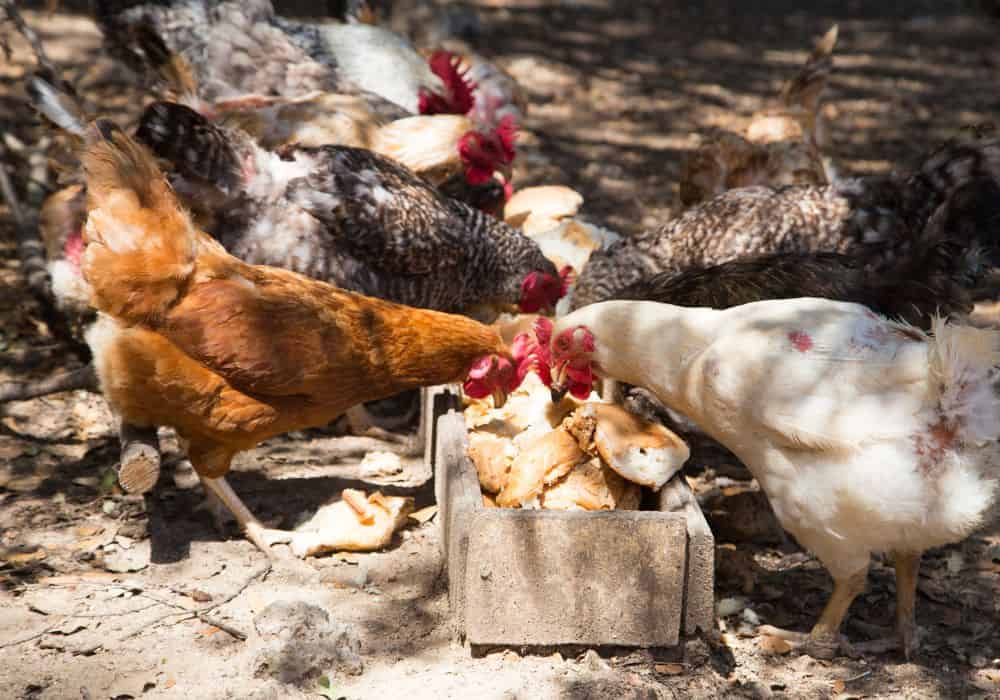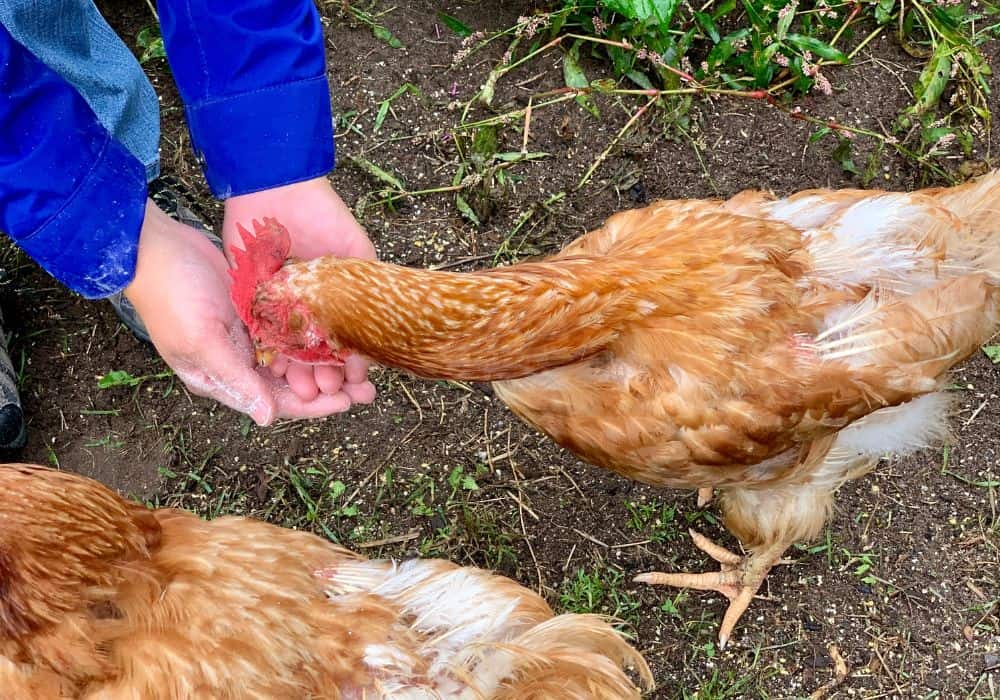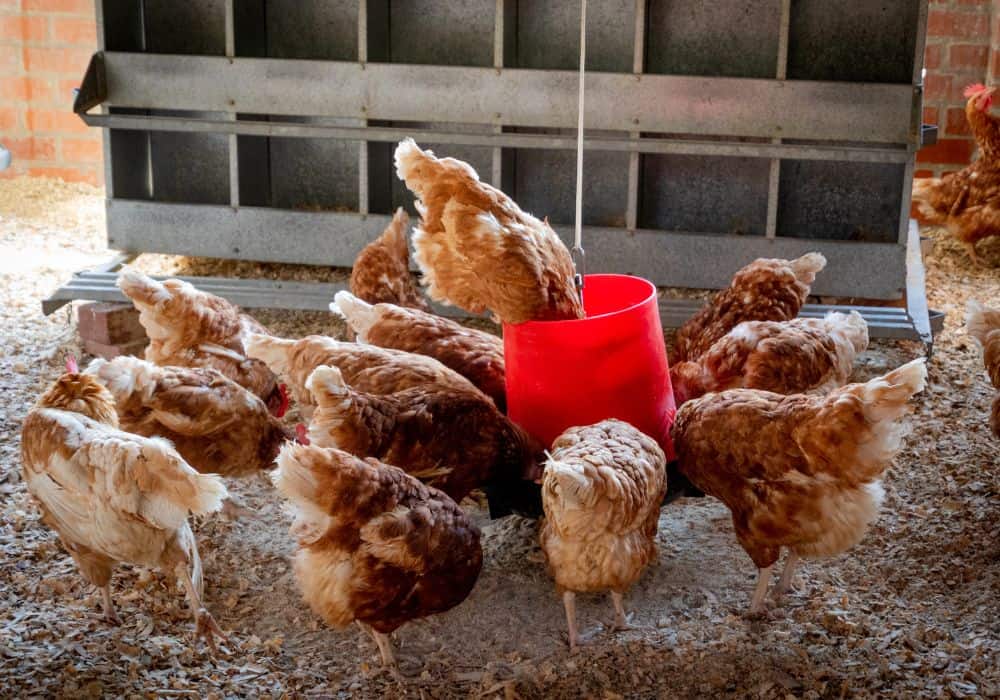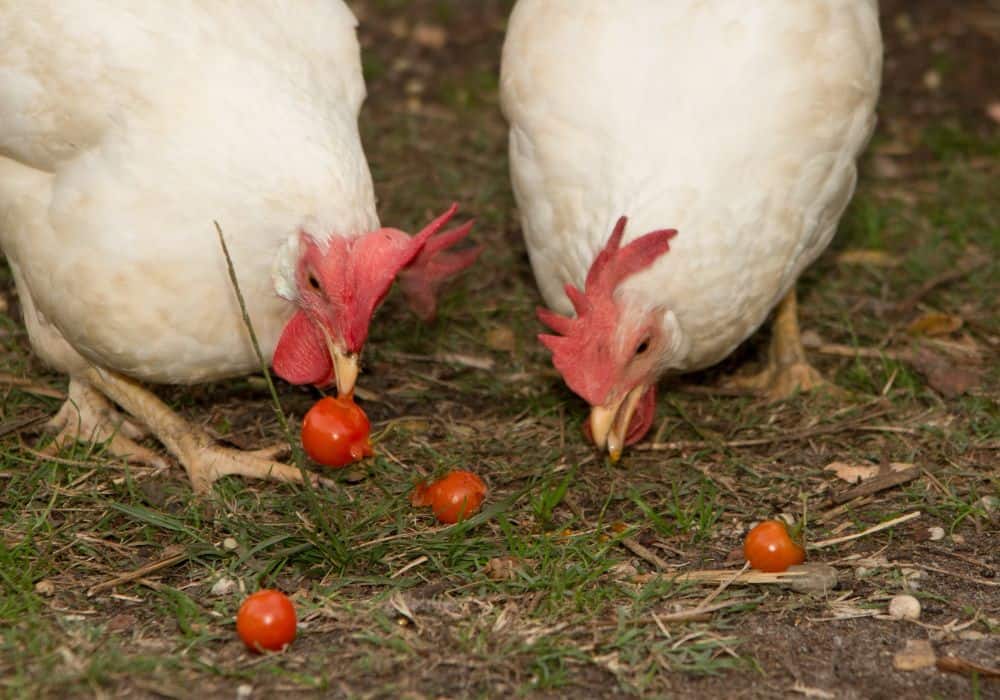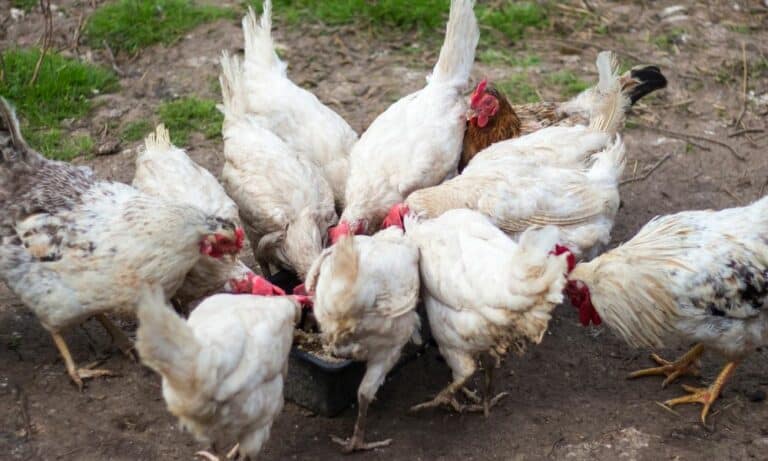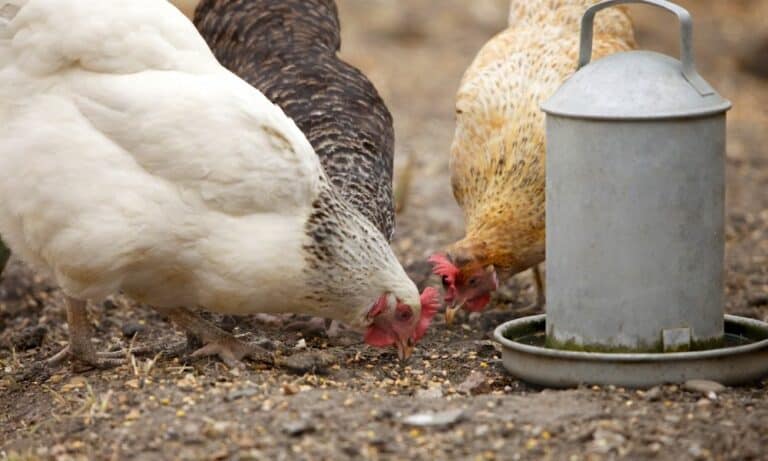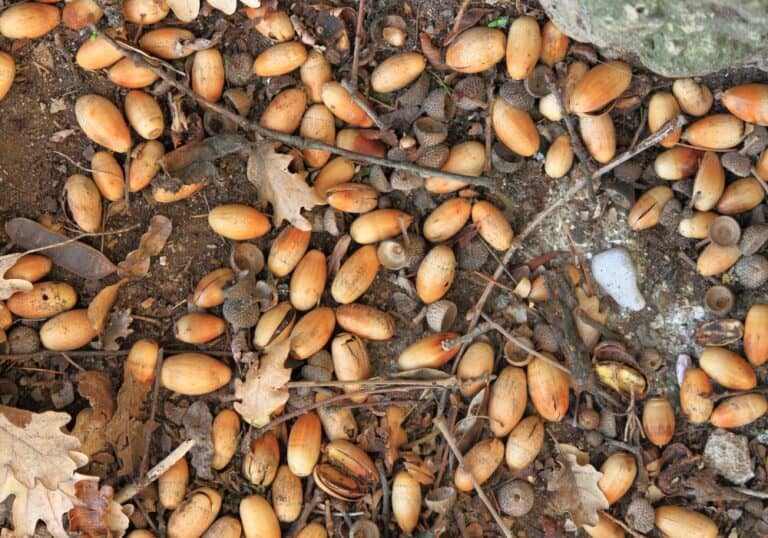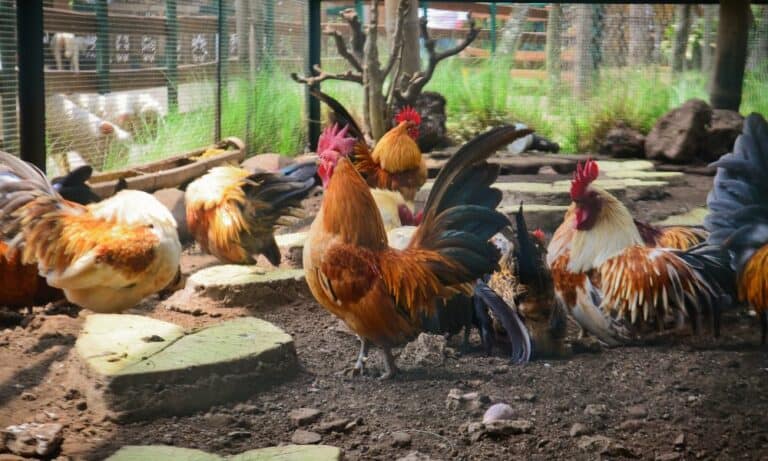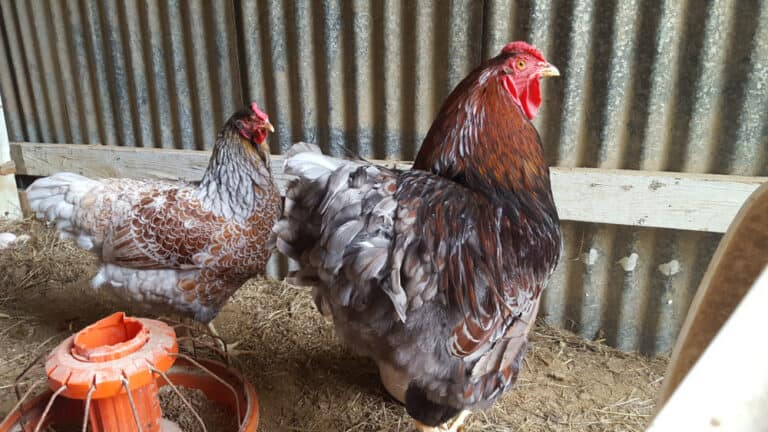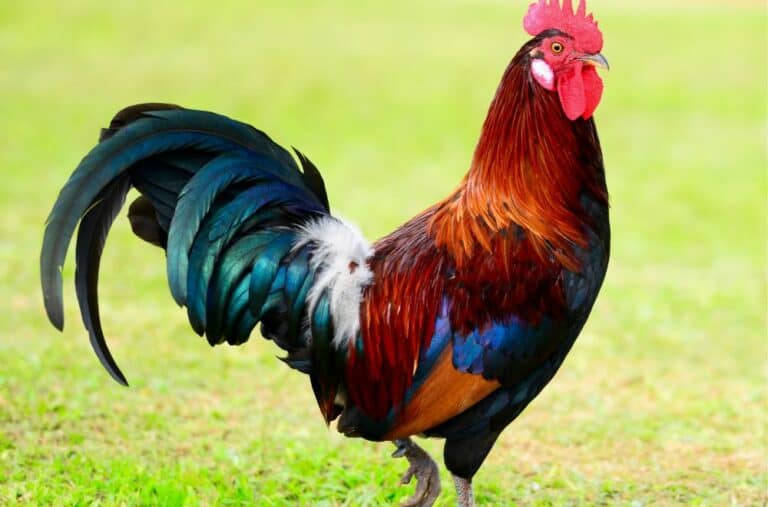Are you a backyard chicken owner and also someone passionate about the environment? Do you love to feed your chickens kitchen scraps? Are you someone who cares deeply about both these things and try to be as mindful of your waste as possible?
In that case, it’s likely that you found yourself in situations where you stared at moldy bread, feeling awful about the situation and wondering how you can put this bread anywhere but the trash.
Did you think about feeding it to your chickens but wondered, “Can my chickens eat this?” I feel your pain! After all, it’s not easy to know if what’s not safe for you is safe for your flock, especially when what you’re looking at is moldy bread. Well, I’m here to help!
Keep reading to find every aspect of the question: Can Chickens Eat Moldy Bread?
Is Mold Bread Safe For Chickens?
Before I explain further, let me first clarify what mold is— fungus that thrives in moist, warm settings. Bread gets moldy when it’s exposed for a long time to elements that make it wet. It usually takes 7-10 days for bread to mold.
Stale bread is not moldy bread. Mold releases poisonous spores that are harmful to humans and animals, both. These spores produce fuzzy green, black, white, or pink spots that are visible to the naked eye. Due to these spots, the bread will also have a strange odor if it’s moldy.
While feeding moldy bread to the chickens might seem like an idea that could save the day, in reality, it ruins the day. That’s because, when I say harmful to humans and animals, both, chickens are included!
Eating moldy bread, or moldy food in general, can have a variety of adverse effects on a chicken’s health. The spores may irritate the respiratory system, and the bird may develop respiratory problems as a result.
Moreover, mold produces mycotoxin, which is harmful to all animals and humans. Consuming moldy bread automatically translated to mycotoxins exposure, and that translates to liver damage, immune system suppression, and even death.
It may also upset your chicken’s stomach and cause diarrhea, which will lead to substantial loss of fluids and dehydration. Also, since moldy bread causes a chicken to get sick, it will also result in loss of appetite or decreased appetite, leading to malnutrition and weakness.
In severe cases, moldy bread consumption can even cause neurological damage, and your chicken may experience seizures! That said, it is not safe for chickens to eat moldy bread. Unfortunately, that’s not all!
When a chicken consumes moldy bread, the toxins in the bread will not only enter the chicken’s body but will also transfer to your chicken’s eggs!
Since egg production will be affected, the quality of the eggs will significantly reduce, and if the toxins are in heavy amounts, the egg will not be fit for consumption.
Also, if you keep the moldy bread with other food that’s meant for your chickens, it will also get contaminated. And then, all of it will become unfit for your chickens. Plus, let’s not forget the treatment costs that the entire ordeal will bring if your chicken gets sick.
So, not only does it put your chickens through pain and discomfort, but it will also bring you a lot of inconveniences. As guilty as you may feel when throwing the moldy bread away, discarding it is the only safe option.
Things To Lookout For (Symptoms)
It’s possible that your chickens eat moldy bread or moldy food by accident. So, it’s important to be vigilant and always stay on the lookout for any symptoms. The number one telltale indicator is when the chicken loses its appetite abruptly.
Another warning sign is when your chicken starts acting in ways that it wouldn’t act normally. For example, if your chicken becomes too lethargic and sleepy, or extraordinarily energetic and restless— there’s something wrong.
Lastly, if your chicken urinates excessively, gets diarrhea, or experiences any other digestive issues, it is a symptom. That’s because mold often upsets the stomach and the digestive system. In case you notice any of these symptoms, get a vet involved for an accurate diagnosis.
How To Tell If Your Bread Is Moldy
I’ve already explained what Moldy Bread looks like. Mostly you can tell by looking at the bread that it’s moldy. But in some cases, you might need a bit of help. Always inspect a bread loaf before giving it to your flock. Take a close look.
If you notice fuzzy or slimy patches on the surface of the bread, discard the bread loaf immediately. The patches can be either green, black, white, pink, or all of these colors. Next, check if the bread is too hard.
Some breads like rye or sourdough may naturally have a tougher texture, and that’s OK. But in cases of normal bread, it’s an indication of mold. You may also want to smell the bread but don’t bring it too close to your nostrils as it can be harmful.
If the bread smells strange, it may be moldy. Lastly, cut the bread loaf so you may examine it from the inside. Sometimes, mold does not appear on the outer surface but grows on the inside.
If you spot even the tiniest mold spot on the bread, throw it away entirely because mold spores disperse at a fast rate. It is likely that by the time you have discovered the mold, the whole bread loaf is contaminated even if you don’t see visible signs.
Remember, it’s always better to be safe than sorry!
Can Chickens Eat Bread?
It is a common belief that bread is a safe-to-eat food for hens. In fact, isn’t that why you considered feeding moldy bread to the chickens in the first place? Bread crumbs are often fed to chickens as treats. But, can chickens eat bread?
The answer is yes! Just because moldy bread is harmful to them doesn’t mean you stop treating them to bread altogether! It only means that you should be mindful and analyze the bread thoroughly before feeding it to them.
You can even make it fun! Mix the bread with their regular chicken feed and add water to it, and throw in some vegetables like squash, pumpkin, or broccoli. This way, you’ll be able to treat your chickens to a nutritious but tasty snack. You can try different vegetable combinations, too.
Also, if baking is something you like, you can also try baking different types of bread for your chickens. Add different items to the bread batter like berries or nuts to the bread, and you will have your very own special chicken bread.
It’s also important to note that bread is not good for baby chicks, as they need proper nutrition for growth. Also, you should always ensure that the bread is fresh and that you do not give it to them daily! It should be treated only as a special treat that you give to them occasionally— too much bread can be unhealthy.
What Chickens Can and Can Not Eat
Chickens are interesting pets, and their diet can be as versatile as you like. They are omnivores, and there are many food items that they can eat. But there are a few exceptions of food they can not eat alongside moldy food.
So, here’s a list of food items that you can feed them, followed by a list of things you should avoid:
Foods Chickens Can Eat:
- Fruits like apples, berries, melons, grapes, etc.
- Vegetables like carrots, spinach, cabbage, cucumbers, lettuce, etc.
- Grains like wheat, barley, oats, corn, etc.
- Seeds like sunflower seeds, pumpkin seeds, sesame seeds, etc.
- Insects like mealworms, crickets, etc.
- Dairy like yogurt, cheese, etc.
- Meat and fish (cooked, in moderation)
- Eggshells (crushed only)
Food Chickens Cannot Eat:
- Avocado
- Chocolate
- Coffee grounds and other sources of caffeine
- Salty foods
- Sugary foods
- Uncooked beans
- Green potato skins
- Tomatoes
- Onion or garlic (in large quantities)
- Citrus fruits (in large quantities)
If you read this list and wondered why, watch this comprehensive video on YouTube about the Kitchen Scaps that your chickens can and can not eat:
Conclusion
To bring all of it in a full circle, chickens cannot eat moldy bread! Not only moldy bread, but any moldy food can be poisonous to your feathered friends. So, always make sure that you discard your bread as soon as you discover any trace of mold on it.
Also, always inspect the bread before feeding it to your chickens. However, in case they do end up ingesting moldy bread, here’s what to do:
- Remove any and every source of moldy food from the chicken coop
- Inspect for symptoms like abnormal behavior or digestive issues
- Rush to the vet immediately
You can always feed your grown chickens bread, but occasionally, as treats. Always be sure to provide them with a well-balanced nutritious diet, with sufficient vitamins and minerals. That said, let me know in the comments what treats you like to give to your flock!

